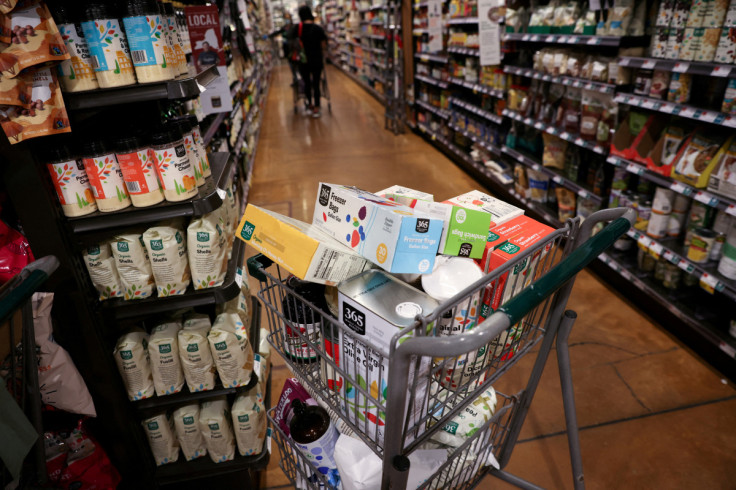U.S. Consumer Spending Edges Up In July; Monthly Inflation Slows Considerably

U.S. consumer spending barely rose in July as a drop in gasoline prices weighed on receipts at service stations, but monthly inflation slowed down considerably, which could give the Federal Reserve room to scale back its aggressive interest rate hikes.
Though the report from the Commerce Department on Friday showed a modest gain in personal income last month, wages increased strongly, which could help to underpin consumer spending and keep the economy growing, though moderately.
The slowdown in inflation is likely to be welcomed by Fed officials. Fed Chair Jerome Powell is due on Friday to address the annual Jackson Hole global central banking conference in Wyoming and could shed more light on how much further U.S. borrowing costs need to rise. The Fed has hiked its policy rate by 225 basis points since March.
Consumer spending, which accounts for more than two-thirds of U.S. economic activity, edged up 0.1% last month. Data for June was revised slightly down to show outlays advancing 1.0% instead of 1.1% as previously reported. Economists polled by Reuters had forecast consumer spending would gain 0.4%.
The national average gasoline price dropped to about $4.27 per gallon in the last week of July after hitting an all-time high just above $5 in mid-June, according to data from motorist advocacy group AAA. While that freed money for spending elsewhere, it hurt sales at service stations.
As a result, spending on goods fell 0.2% after surging 1.5%. That partially offset a 0.3% rise in spending on services.
A moderate pace of consumer spending in the second quarter helped to blunt the drag on the economy from a sharp slowdown in inventory accumulation caused by supply chain bottlenecks. Gross domestic product contracted at a 0.6% annualized rate last quarter after shrinking at a 1.6% pace in the first quarter.
ECONOMY STILL GROWING
The economy is, however, not in a recession. When measured from the income side, the economy grew at a 1.4% pace, slowing from the January-March quarter's 1.8% rate, the government reported on Thursday.
Though the Fed's aggressive monetary policy tightening has raised the risk of an economic downturn, there is cautious optimism that it could slow the pace of its rate hikes if inflation continues to moderate.
The personal consumption expenditures (PCE) price index dipped 0.1% last month, the weakest reading since April 2020, after surging 1.0% in June. In the 12 months through July, the PCE price index increased 6.3%. That was the slowest year-on-year rise since January and followed a 6.8% jump in June.
Excluding the volatile food and energy components, the PCE price index gained 0.1%, the smallest rise since February 2021, after racing 0.6% in June. The so-called core PCE price index increased 4.6% on a year-on-year basis in July. The smallest annual advance in nine months followed a 4.8% rise in June.
Fed officials are closely watching the PCE price indexes, in addition to the consumer price index. Though oil prices have dropped significantly, rental costs have remained hot, leaving some economists hesitant to declare that inflation has peaked.
With monthly inflation subsiding, inflation adjusted consumer spending increased 0.2% in July after being unchanged in June. That bodes well for GDP growth prospects this quarter. Personal income rose 0.2%, but wages shot up 0.8% after increasing 0.6% in June.
Strong wage growth amid a tight labor market bodes well consumer spending, especially if inflation continues to cool.
© Copyright Thomson Reuters {{Year}}. All rights reserved.





















